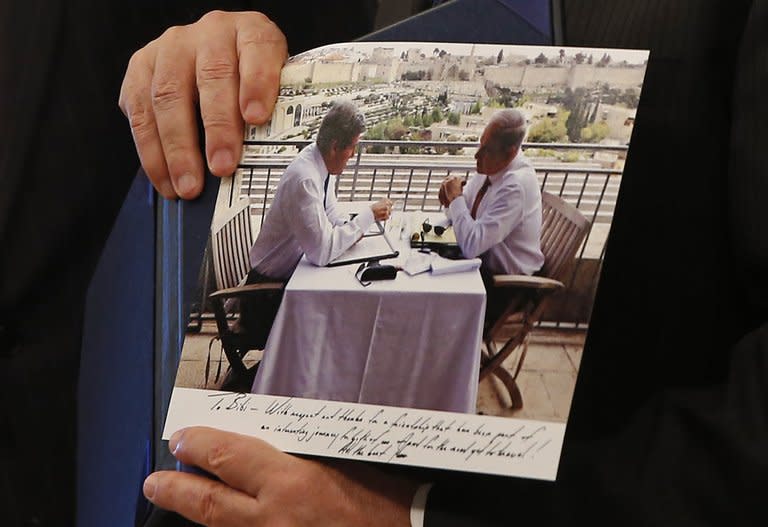Kerry back in Israel for peace push
US Secretary of State John Kerry on Thursday admitted there was scepticism and cynicism about his efforts to broker new talks between Israelis and Palestinians, as he made his fourth visit to Israel. Flying in from a night of diplomacy in Amman over the war in Syria, Kerry went straight into talks with Prime Minister Benjamin Netanyahu as he pursued his bid to kick-start negotiations frozen since late 2010. Kerry has now visited Israel as many times in his first months in office as his predecessor Hillary Clinton did in four years as top US diplomat. Despite public pronouncements of support from both sides, there is a growing frustration that so far there has been little to signal any shift in their long-standing positions. Complicating efforts is the new Israeli government which has moved more towards the right and includes some members who openly oppose a two-state solution. "There are ideological differences at the heart of the government," Justice Minister Tzipi Livni, who is also Israel's top peace negotiator, told public radio. The lack of talks "only serves the interests of those who think that each passing day (without a peace agreement) allows them to build a new house," she said, referring to Jewish settlement building on Palestinian territory. "But this is not the position of the majority of Israel's population," she stressed. Kerry, who last week was the subject of a scathing portrait in the Israeli daily Haaretz which called him "a naive and ham-handed diplomat who has been acting like a bull in the china shop," acknowledged the difficulties. "I know this region well enough to know there is scepticism, in some quarters there is cynicism and there are reasons for it. There have been bitter years of disappointment," he said as he started talks with Netanyahu. But he insisted: "It is our hope that by being methodical, careful, patient, but detailed and tenacious, that we can lay on a path ahead that can conceivably surprise people and certainly exhaust the possibilities for peace." Netanyahu vowed that his government wanted to resume the peace process. "Above all what we want to do is restart the peace talks with the Palestinians. You've been working on it a great deal, we've been working on it together," he told Kerry. "It's something I want, it's something you want, it's something I hope the Palestinians want." And Netanyahu insisted: "Where there's a will we'll find a way. " Kerry was later to head to Ramallah in the West Bank to meet Palestinian president Mahmud Abbas, before talks with Israeli President Shimon Peres in Jerusalem. In an interview with Palestinian media on Wednesday, Hanan Ashrawi, Palestine Liberation Organisation executive committee member, said she saw "no readiness" on the Israeli side for a resumption of talks. "We are waiting for a clear American position and a clear Israeli commitment in the peace process requirements," she said. Kerry, however, said he was committed to his push, and stressed the United States placed a top priority on the security of Israel -- one of the key concerns of the Israelis. He revealed that US General John Allen, the former commander of US and NATO forces in Afghanistan, was also already "here on the ground working with his counterparts on the issues of security". Allen, who declined a post to become the NATO supreme allied commander in Europe, is tipped to become a special US security coordinator to Israel. After whirlwind talks on Thursday and Friday, Kerry will return to the region on Monday to attend the World Economic Forum in Amman. Abbas has also been invited to the forum, and it is possible Kerry could unveil a plan for the economic revival of the West Bank which he has been working on behind the scenes.



